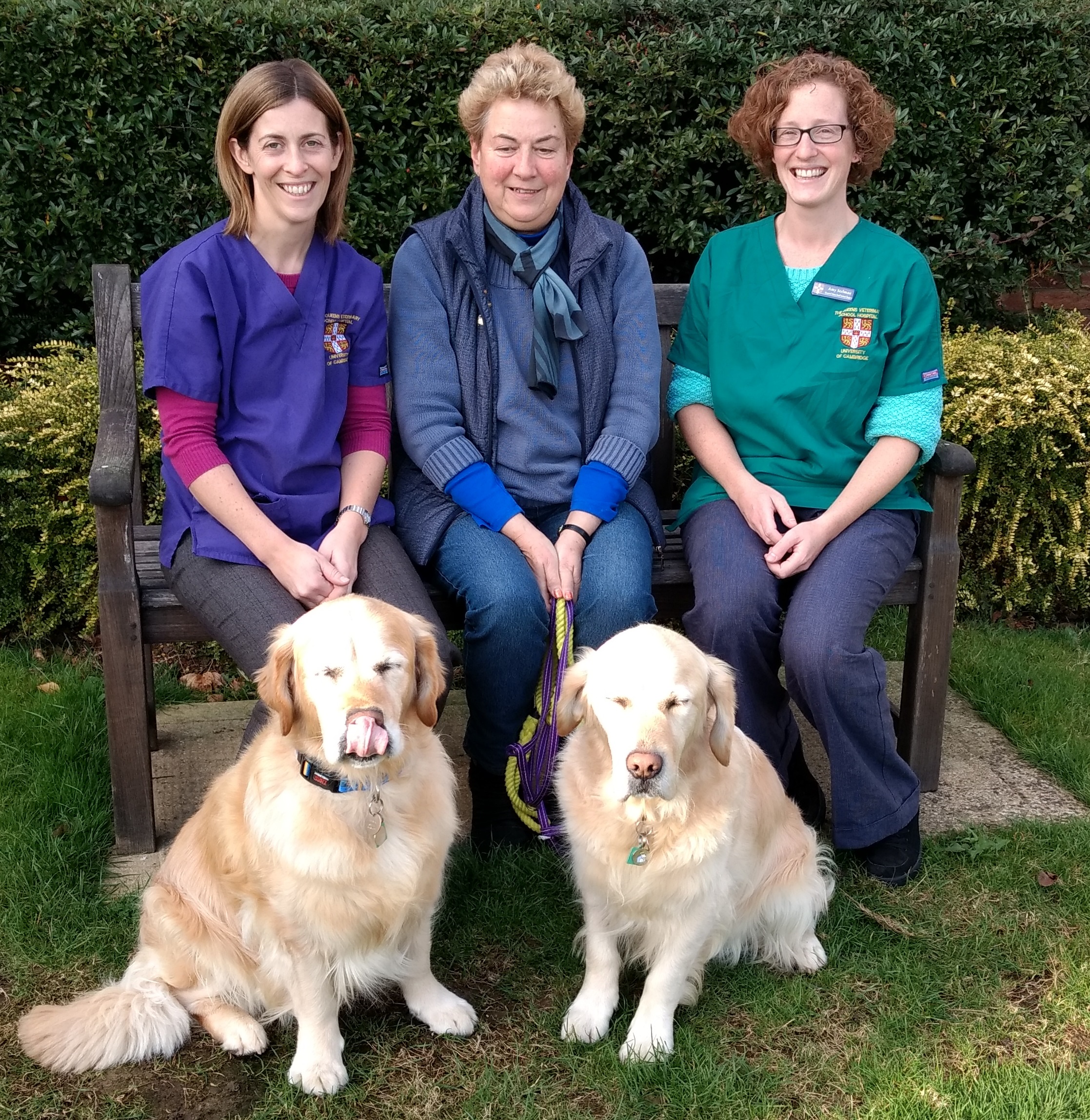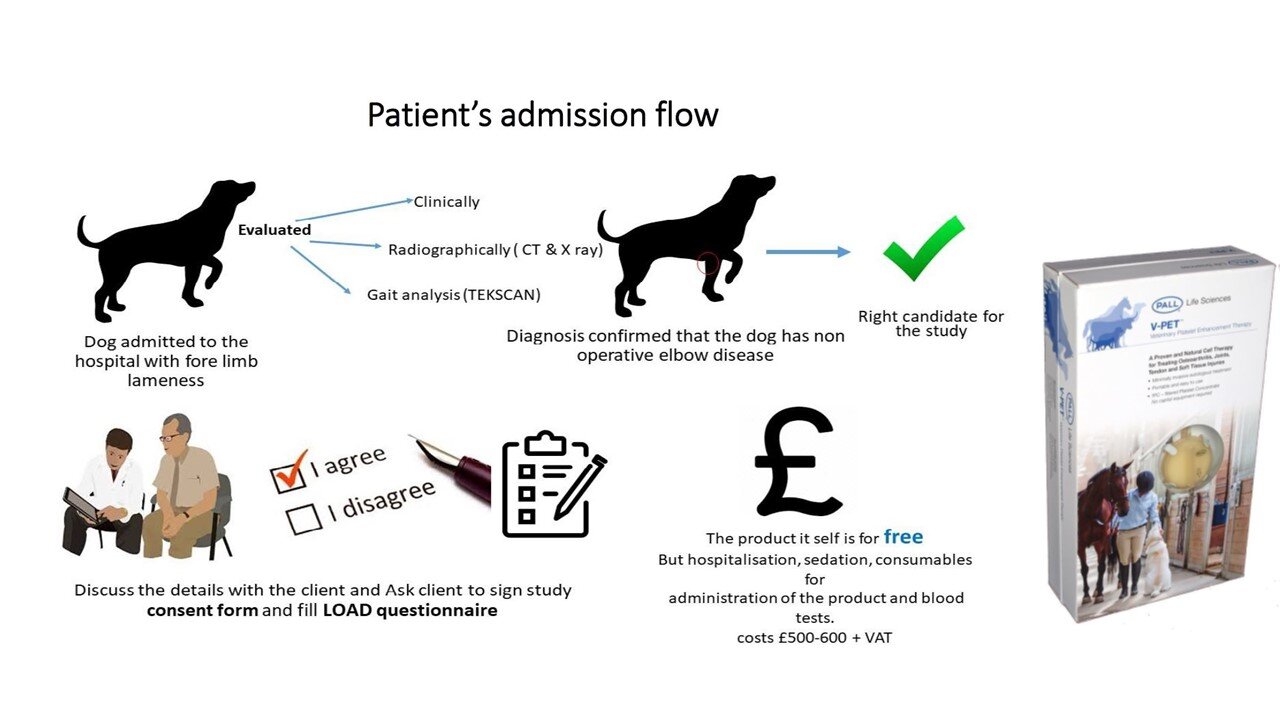Clinical Research
The Surgical Discovery Centre is perfectly placed to work with staff at the Queen's Veterinary School Hospital on a range of research projects across disciplines. Linking in to provide assistance with well-established, long-running projects; supporting new research ideas and starting new projects together with the QVSH staff, clients, and patients.
Current research includes:
Circulating tumour cells as predictors of disease progression and overall survival in dogs with naturally-occurring osteosarcoma.
Osteosarcoma is much more common in dogs than humans. This project, funded by Sarcoma UK, looks at the blood tests results of dogs being treated for osteosarcoma, in order to study the connection between levels of circulating tumour cells and disease progression. As the disease pattern of osteosarcoma in dogs and humans is the same, answers from dogs could translate into results for people.
Circulating tumour cell stained from blood taken from a canine patient undergoing treatment for osteosarcoma. Using a filter based system and our panel of selective sarcoma markers, blood is analysed for GFP, DAPI and Cy3. This method ensures only cells stained in all three channels can be confirmed as a circulating tumour cell. In contrast, white blood cells can be seen surrounding the tumour cell with no staining in Cy3 or GFP. Identifying circulating tumour cells in patient bloods by this method can be used to monitor treatment response over time and improve quality of care for dogs with osteosarcoma.
Objective assessment of the use of Focused Shockwave therapy to treat orthopaedic small animal patients.
In collaboration with Storz Medical (Switzerland) and Dr Kirsten Hausler at TierPhysiotherapie (Germany) we are researching the effects of focused shockwave therapy in the treatment of orthopaedic patients at the Queen’s Veterinary School Hospital. Using our recently installed shockwave unit alongside the Tekscan animal gait analysis system we can obtain objective data on the outcomes of treatment for a variety of conditions, with particular interest in osteoarthritis.
The use of Whole-Body Barometric Plethysmography to calculate BOAS index in dogs with Brachycephalic Obstructive Airway Syndrome, and as an objective demonstration of the effectiveness of new surgical techniques.
Investigating infection by looking at the components of synovial fluid for infected and non-infected joints
synovial fluid from a patient with degenerative joint disease (image courtesy of central diagnostic services)
synovial fluid from a patient with neutrophilic inflammation (image courtesy of central diagnostic services)
Preliminary assessment of an ultrasonographic screening method to identify the location of the ureteric openings in clinically normal Golden retrievers
Cherry and truffle attended the bladder screening, pictured here with some of the team
Urodynamics and the investigation and management of urinary incontinence
Clinical Trials
The Surgical Discovery Centre (SDC) will coordinate an expanded programme of clinical trials in novel orthopaedic treatments for dogs and cats seen within the clinical services at the Queens Veterinary School Hospital (QVSH).
Effects of intra-articular regenerative therapy in dogs with elbow osteoarthritis (OA)
We are actively looking for dogs diagnosed with osteoarthritis in one elbow (or, if both elbows are affected, with one elbow obviously more severely affected) to participate in this study. The ideal candidate will have chronic elbow pain that is interfering with daily life and will not have improved with other treatments.



















